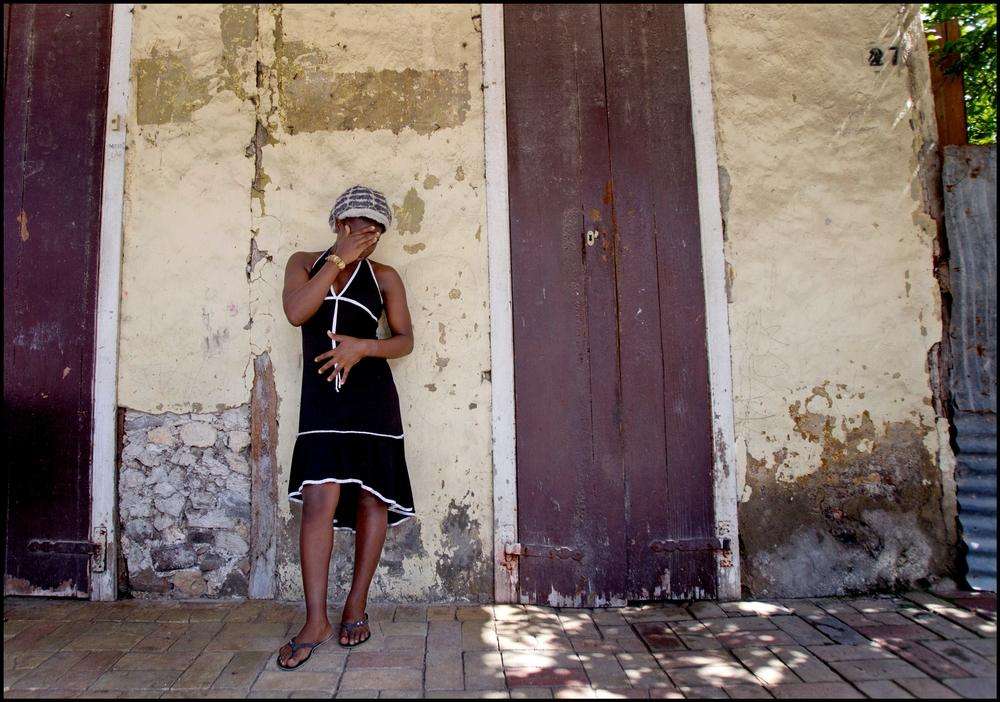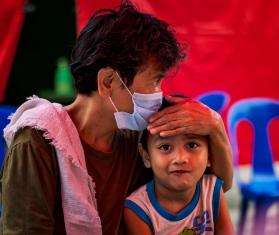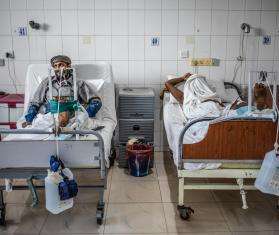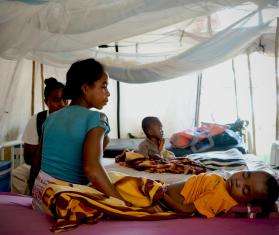Abortions performed by untrained persons, and in poor sanitary conditions, can lead to fatal complications for women and girls. Complications due to unsafe abortions are among the leading causes of maternal mortality worldwide.
Doctors Without Borders/Médecins Sans Frontières (MSF) began providing access to safe abortions on request at some of our field projects in 2004. Catrin Schulte-Hillen, MSF advisor on sexual and reproductive health, explains the reasons and challenges of this initiative.
Why did MSF commit to providing safe abortion services on request at our field projects?
The complications associated with unsafe abortions—those not carried out under medical supervision—are among the most common causes of maternal mortality. At the same time, these are the only cases of maternal mortality that can be wholly anticipated and prevented.
In 2014 and 2015, MSF teams treated more than 20,000 women with complications from abortions, including severe hemorrhaging, infections, and peritonitis. These can cause injury, sterility, and even death. We estimate that between 50 and 80 percent of those complications in MSF projects were due to abortions carried out in poor conditions and/or by unqualified personnel.
The vast majority of cases like this occur in developing countries, as 97 and 95 percent of abortions are unsafe in Africa and Latin America, respectively. In developed countries, around 6 percent of abortions are unsafe.
Access to safe abortions—those carried out under medical supervision—has been an official part of health care services provided by MSF teams in the field since 2004.
Our teams have three key responsibilities:
- Respect the reason the woman or young girl gives for wanting to have an abortion.
- Ensure she can discuss her desire to have an abortion with medical staff, and make an informed decision.
- Provide quality medical care.
Are there legal obstacles to abortions in some cases?
You have to be wary of legal arguments, especially when they are used to prevent someone from having a medically supervised abortion.
These arguments can conceal a poor understanding of the actual legal framework around abortion. More importantly, they do not give sufficient priority to the medical needs or personal wishes of the women involved.
For context, abortions are completely illegal in only six countries around the world, none of which are in Africa or Asia. In 97 percent of countries, they are allowed only when it’s necessary to save the woman’s life. Sixty percent extend this to when it’s necessary for health reasons, including mental health. Furthermore, more than 50 percent of countries allow abortions for pregnancies caused by rape.
However, even where there’s legal flexibility, this doesn’t exclude the possibility of legal action. These hurdles must be looked at from a broader perspective; they must be balanced with concern for the respect and safety of the women involved.
With each abortion case, you have to evaluate the following: interpretation of the local laws, the local customs, and the presence of medical facilities able to carry out safe abortions that we can recommend to women.
Are there risks associated with carrying out abortions for the MSF teams?
Safe abortions are an obvious medical need, yet still very neglected. MSF must not give up on dealing with this problem just because "it’s complicated."
We have to be ready to accept and deal with conflicts and possible repercussions while striving to reduce the risks for women.
In countries with particularly strict rules on abortion, MSF works with international staff who assume the responsibility for carrying out procedures.
Confidentiality is also of utmost importance, in order to protect women and young girls who have chosen to have an abortion.
It’s vital to communicate clearly about the issue, to explain our medical mission, our arguments, and our justifications for providing this type of care to the women who request it.
Our opportunity to change attitudes towards abortion often depends on our ability to create a dialogue on the issues; dialogue with both MSF medical staff and other health care professionals in local communities.
Catrin Schulte-Hillen is the main author of the paper ‘Why Médecins Sans Frontières (MSF) provides safe abortion care and what that involves’ published on the online medical portal BioMed Central.




